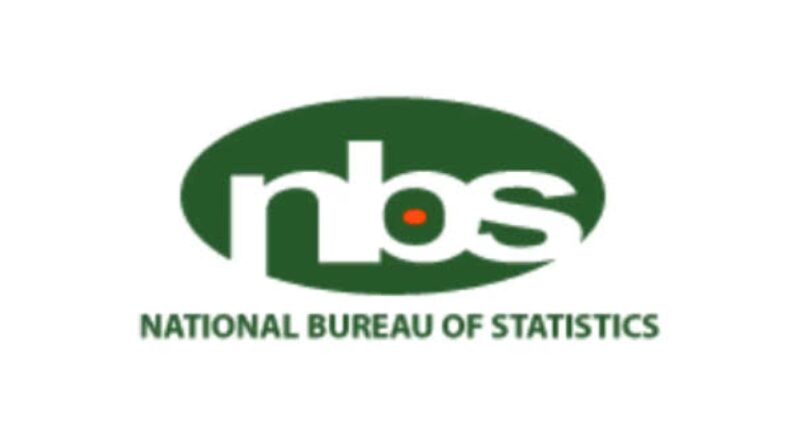Only 5 Nigerian States Got Foreign Investment in Q1 2025
Only Five Nigerian States Attract Foreign Investment in Q1 2025
A recent review by Sahara Reporters, based on data from the National Bureau of Statistics (NBS), has revealed that only five states in Nigeria attracted any form of foreign capital in the first quarter of 2025—an alarming development that raises questions about the country’s investment climate and economic direction.
Covering the period from January to March 2025, the report shows that Nigeria’s total capital importation stood at $5.642 billion, comprising both Foreign Direct Investment (FDI) and Portfolio Investment (PI). However, despite the headline figure, a closer look reveals a highly concentrated and fragile investment landscape.
FCT and Lagos Account for Bulk of Investment
The data shows a sharp imbalance in the distribution of capital importation across the country. Leading the list is the Federal Capital Territory (FCT) with an inflow of $3.047 billion, followed closely by Lagos State, which received $2.564 billion.
Together, these two locations accounted for over 99% of total foreign capital entering Nigeria during the quarter. The remaining states received only a tiny fraction, reflecting a widening gap in investment flows between Nigeria’s economic hubs and the rest of the country.
Other states that attracted capital in Q1 include:
-
Ogun State – $7.95 million
-
Oyo State – $7.81 million
The fifth state was not named in the summary, highlighting the limited and uneven geographic spread of foreign investment in Nigeria’s current economic landscape.
Low Foreign Direct Investment Raises Concerns
Despite the seemingly substantial headline figure of $5.642 billion, a deeper dive reveals that only $126 million of that amount was Foreign Direct Investment (FDI). FDI typically represents long-term investments—such as setting up businesses, acquiring physical assets, or investing in infrastructure—and is often considered a strong indicator of investor confidence and economic stability.
Read Also: Lassa Fever Outbreak: 822 Cases, 155 Deaths in Nigeria
In contrast, the bulk of the inflow, amounting to $5.204 billion, came in as Portfolio Investment, which is short-term in nature, and subject to volatility, especially in uncertain or unstable economies. Portfolio investments include trading in stocks, bonds, and other financial assets, and can easily be pulled out when market conditions change.
The low FDI-to-total-investment ratio underscores a serious confidence gap among long-term investors, suggesting that while some capital is flowing into Nigeria, much of it is speculative and not rooted in sustainable growth.
Financial Services Sector Dominates Investment
Foreign capital continues to be heavily concentrated in Nigeria’s financial services sector. According to the data:
-
Banking received the highest share with $3.127 billion
-
Financing activities followed at $2.097 billion
-
Production and manufacturing received a modest $129.9 million
-
Agriculture attracted just $24.1 million
This imbalance reflects a narrow investment focus, where funds are channeled into sectors offering quicker returns, while critical areas such as manufacturing, agriculture, and infrastructure remain significantly underfunded.
Experts warn that such a trend may undermine long-term economic resilience, especially in a country like Nigeria that aims to diversify its economy and reduce dependency on oil revenues and imports.
Investor Confidence Remains Shaky
Nigeria’s foreign investment patterns in Q1 2025 also reflect broader concerns in the business environment. Investors continue to express worry over several key challenges, including:
-
Worsening insecurity in various regions, including threats from insurgency, kidnapping, and civil unrest
-
Volatile exchange rates, which make planning and returns on investment unpredictable
-
Inconsistent economic and monetary policies, including frequent changes in interest rates and trade rules
-
Regulatory uncertainty, particularly around taxation, repatriation of profits, and sector-specific regulations
These issues combine to create a high-risk environment, deterring long-term investors and encouraging only speculative or short-term engagements.
Implications for Economic Growth and Development
The implications of these findings are far-reaching. With only five states attracting capital and a heavy skew toward short-term portfolio flows, Nigeria risks missing out on the kind of investment that creates jobs, builds industries, and stimulates inclusive growth.
Furthermore, the regional disparity in capital importation reflects growing inequality between investment-friendly urban centers like Lagos and Abuja and the rest of the country. This could deepen economic imbalances and hinder national development goals.
There is also concern that over-reliance on financial sector inflows, without corresponding growth in real-sector investments, could leave the economy vulnerable to external shocks, such as changes in global interest rates or investor sentiment.
What Needs to Change
Experts suggest that in order to attract more meaningful investment—particularly Foreign Direct Investment—Nigeria must:
-
Create a more stable and transparent policy environment
-
Strengthen security and rule of law, especially in rural and industrial zones
-
Improve infrastructure and access to power
-
Streamline bureaucratic bottlenecks and regulatory hurdles for businesses
-
Invest in human capital and innovation to make Nigeria more globally competitive
Without these structural reforms, the country may continue to see limited, uneven, and unsustainable capital inflows.
Conclusion: A Narrow Window of Opportunity
The first-quarter capital importation data is both a warning sign and a wake-up call. While Nigeria is still attracting billions in foreign investment, the nature, distribution, and quality of that investment raise important questions about the country’s economic direction and future competitiveness.
To turn the tide, urgent steps must be taken to address the core issues hindering long-term capital inflow. Failure to do so could see Nigeria fall further behind its African peers in attracting the kind of investment needed for real, inclusive, and sustainable development.
Content Credit | Olaoluwa Ayomide
Image Credit | saharareporters.com




